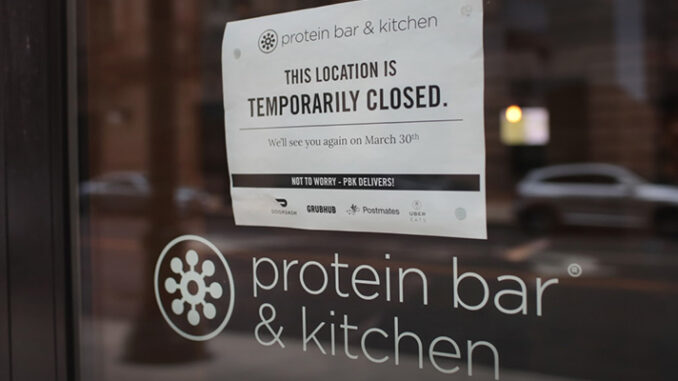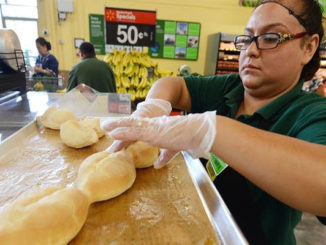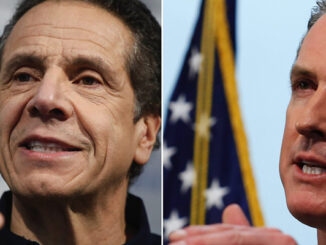
by Sophie Quinton
Economists who advise the Colorado legislature told lawmakers in mid-March to expect a roughly $800 million revenue decline for the next fiscal year as people travel and dine out less during the coronavirus pandemic.
That estimate already looks far too optimistic. “The forecast that we released in March — we weren’t imagining the world that we’re living in right now,” said Kate Watkins, chief economist for the Legislative Council Staff, the nonpartisan research arm of the Colorado General Assembly.
Governors nationwide have ordered businesses to close and people to stay home in order to slow the spread of the novel coronavirus. But the public health measures have created an economic crisis that will, in turn, hit state and city budgets.
Now policymakers are scrambling to figure out how much spending power they’re losing at a moment when they need money to fight the pandemic and help laid-off workers and struggling businesses.
Few state economists and budget analysts have calculated the fiscal impact of the pandemic so far, and it’s hard at this early stage to say how big the drop off in tax collections will be, said Brian Sigritz, director of state fiscal studies for the National Association of State Budget Officers, a Washington, D.C.-based membership organization.
But the early estimates don’t look good, he said. “It looks like the drop-off that states could be facing this time could be more severe than the Great Recession.”
State officials all over the country are planning for revenue declines. Hawaii officials have estimated a $225 million decline; in New York, it’s a whopping $15 billion. West Virginia is losing $9 million a week from its closed casinos alone.
The governors of New Jersey, Ohio and Pennsylvania already have announced limited spending and hiring freezes. California Gov. Gavin Newsom, a Democrat, and Ohio Gov. Mike DeWine, a Republican, have warned state agencies to expect budget cuts.
New York Gov. Andrew Cuomo, a Democrat, said in a radio interview last week that lawmakers may need to cut education funding in order to address the state’s budget hole.
“I said kiddingly to a legislator before, I said, ‘This is the easiest budget we’ve done. There’s no option. The number is zero,’” Cuomo said. “We have no money.”
The members of Colorado’s Joint Budget Committee haven’t been able to meet in person to discuss the changing revenue picture yet, said Rep. Daneya Esgar, a Democrat who chairs the committee.
But Esgar said she’s already asking lawmakers to review what their measures will cost. “I think it’s optimistic to think that any new program be funded at this point,” she said.
The $150 billion the federal government has approved in coronavirus relief for states and cities could help stabilize their budgets, Sigritz said, although its impact remains to be seen. “It’s less than some governors had hoped for, but it will help states address some of the increased spending demands.”
The budget outlook has worsened for states as it’s become clear that social distancing restrictions will need to be in place for months, not weeks, to prevent hospitals from becoming overwhelmed with coronavirus patients.
After initially saying he’d like to lift social distancing guidelines by Easter, President Donald Trump has extended them to April 30. Virginia Gov. Ralph Northam, a Democrat, this week issued a stay-at-home order that will be in effect until June 10.
Twenty-three states have passed budgets for fiscal 2021, which for most states starts July 1, according to the National Conference of State Legislatures, a Denver-based organization that represents legislatures. Twenty-seven states are still debating their budgets for next year.
Lawmakers in states with a budget in place may have to make changes, given the sputtering global economy. “We are going to have to review our budget, there’s no question about it,” said Washington state Sen. Christine Rolfes, a Democrat and chairwoman of the Senate Ways and Means Committee.
Rolfes said lawmakers adjourned on March 12 thinking they’d crafted a prudent budget, with a huge ending balance and a $1.8 billion rainy-day fund. But they didn’t anticipate the scale of the economic slowdown.
Cities also are bracing for a drop in tax collections. “We’re looking at at least a $100 million deficit,” said Las Vegas City Manager Scott Adams. The total budget is about $650 million, he said. “And that’s a midpoint, that’s not the worst-case scenario. And I’m worried that we might be leaning closer to the worst-case scenario.”
Major sources of sales tax revenue, such as restaurants, are closed or doing a fraction of their normal business through curbside pickup and delivery, Adams said.
He said the city has furloughed about 200 employees so far due to the pandemic. If the city doesn’t get federal funding to help it absorb the costs of fighting the coronavirus, he said, those furloughs will become unpaid.
Comparisons to the Great Recession underscore how damaging the pandemic could be for states. Sharp declines in tax collections during the 2007-2009 recession and subsequent slow recovery led lawmakers nationwide to lay off state workers and cut spending on education, health care and social services.
Ten years later, spending on some programs still hadn’t recovered, according to research from the Pew Charitable Trusts (Pew also funds Stateline).
Unlike the federal government, almost all states are required to balance their budgets.
It’s not clear that comparisons to the Great Recession can help states and cities weather the current crisis, fiscal experts say, as the nature of the pandemic is so different — it’s not a slowdown caused by a financial crisis, or a housing bust — and its duration is so uncertain.
“We’ve never had a recession before where businesses are under order to close their doors,” said Jared Walczak, director of state tax policy for the right-leaning Tax Foundation, a Washington, D.C.-based tax policy nonprofit.
In a typical recession, sales tax collections fare better than income tax collections because laid-off workers still make basic purchases, Walczak said. But if businesses stay closed for months and consumption patterns change, sales taxes could emerge as a bigger pain point.
“The one class of purchases that’s doing extremely well right now is groceries, and everything else is falling off the cliff,” he said. Most states don’t tax grocery sales, he noted.
Some states have built up substantial rainy-day funds and budget reserves over the past decade which can help them absorb a short-term drop in revenues and address the pandemic. Governors such as Newsom and Washington’s Jay Inslee, a Democrat, already have drawn upon their state budget reserves.
But even large reserves may not be big enough as lawmakers scramble to fight the pandemic. California budget analysts, for instance, began the year projecting a $21 billion cash reserve by this summer. They’re now warning the money could be spent in months.
“I think to some extent states did learn from the last crisis — they built up their rainy-day funds to the highest nominal level on record,” said Tracy Gordon, a senior fellow at the Urban Institute, a Washington, D.C.-based research organization. “It’s just that nothing could prepare them for this.”
Tim Henderson contributed reporting.
Sophie Quinton writes about fiscal and economic policy for Pew Trust’s Stateline. Previously, she wrote for National Journal, where she covered the White House and was a lead reporter for series on demographic change and the economy.
.



